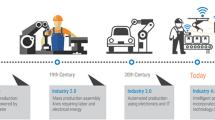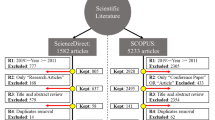Abstract
Consecutive planning approaches, common in the theory of factory design today, fail to support planning projects in practice. They neglect the interactions and dynamics in the planning task and project as well as the subjectivity introduced by the different stakeholders. Unconsidered interactions, conflicting motives and inflexible project structure lead to time-consuming, expensive and late adaptations. Local optimisation and deviations from the overall objectives are consequences of insufficient synchronisation and coordination. The approach proposed in this paper strives for a paradigm shift from consecutive processes to a modular, parallel approach, which can be reconfigured according to the specific conditions of the planning project and enterprise. This new approach integrates the modularisation and configuration of the planning process as well as aspects of management of instability and second order observation. It has been successfully employed in industry cases, which will be introduced in this paper.






Similar content being viewed by others
References
Schuh G, Bergholz M (2003) Collaborative production on the basis of object oriented software engineering principles. Ann CIRP 52(1):393–396
Schuh G, Ripp S (2003) Survey smart factory. WZL RWTH Aachen
Schuh G, Wesch C, Gottschalk S, Gulden A, Koch S (2007) Object-oriented factory planning—Architecture and procedure. wt Werkstattstechnik online 1–2:166–169
Schuh G, Franzkoch B, Burggräf P, Nöcker J, Wesch-Potente C (2009) Configurable planning processes for factory planning. wt Werkstattechnik online 4:193–198
Schuh G, Gottschalk S (2008) Production engineering for self-organizing complex systems. Prod Eng Res Dev 2:431–435
Milberg J, Neise P (2006) Organizational design of supply chains. Prod Eng XIII/ 2:181–186
Straßburger S, Seidel H, Schady R, Masik S (2006) Werkzeuge und Trends der digitalen Fabrikplanung. Tagungsband zur 12. Fachtagung, Kassel, 26–27, Sept 2006, 391–402
Schuh G, Gottschalk S, Wesch C (2007) Potentials in Computer-aided Factory Design–Negotiation-based Top-down-Bottom-Up Approach. Computer-Aided Production Engineering (CAPE), Conference Proceedings, pp 43–52
Schuh G, Gottschalk S, Nöcker J, Wesch-Potente C (2008) Flexible Interconnectivity vs. proprietary Integration. wt Werkstattechnik online 3:127–131
Lu SC-Y, Elmaraghy W, Schuh G, Wilhelm R (2007) A Scientific foundation of collaborative engineering. Ann CIRP 56(2):605–634
Simon HA (1996) The sciences of the artificial. MIT Press, Cambridge
Bullinger H-J (1995) Arbeitsplatzgestaltung. Teubner, Stuttgart
Von Foerster H (1982) Observing systems. Intersystems, Salinas
Schmidt S (2005) Unternehmenskultur: Die Grundlage für den wirtschaftlichen Erfolg von Unternehmen. Velbrück, Weilerswist
Pfeifer T (2001) Fertigungsmesstechnik. Oldenbourg, München, pp 359–376
Beer AS (1995) Brain of the firm. Wiley John and Sons Inc., New York
Hurwitz L, Reiter S (2006) Designing economic mechanisms. Cambridge University Press, New York
Kruse P (2009) Next practice. Gabal, Offenbach
Acknowledgments
The new approach of CBFP is being investigated by the Laboratory of Machine Tools and Production Engineering (WZL) within two publicly funded research and development projects (German Research Foundation, DFG): the “Cluster of Excellence–Integrative Production Technology for High Wage Countries” and the Graduiertenkolleg 1491/1 (University graduate training programme) “Interdisciplinary Ramp-Up”.
Author information
Authors and Affiliations
Corresponding author
Rights and permissions
About this article
Cite this article
Schuh, G., Kampker, A. & Wesch-Potente, C. Condition based factory planning. Prod. Eng. Res. Devel. 5, 89–94 (2011). https://doi.org/10.1007/s11740-010-0281-y
Received:
Accepted:
Published:
Issue Date:
DOI: https://doi.org/10.1007/s11740-010-0281-y




